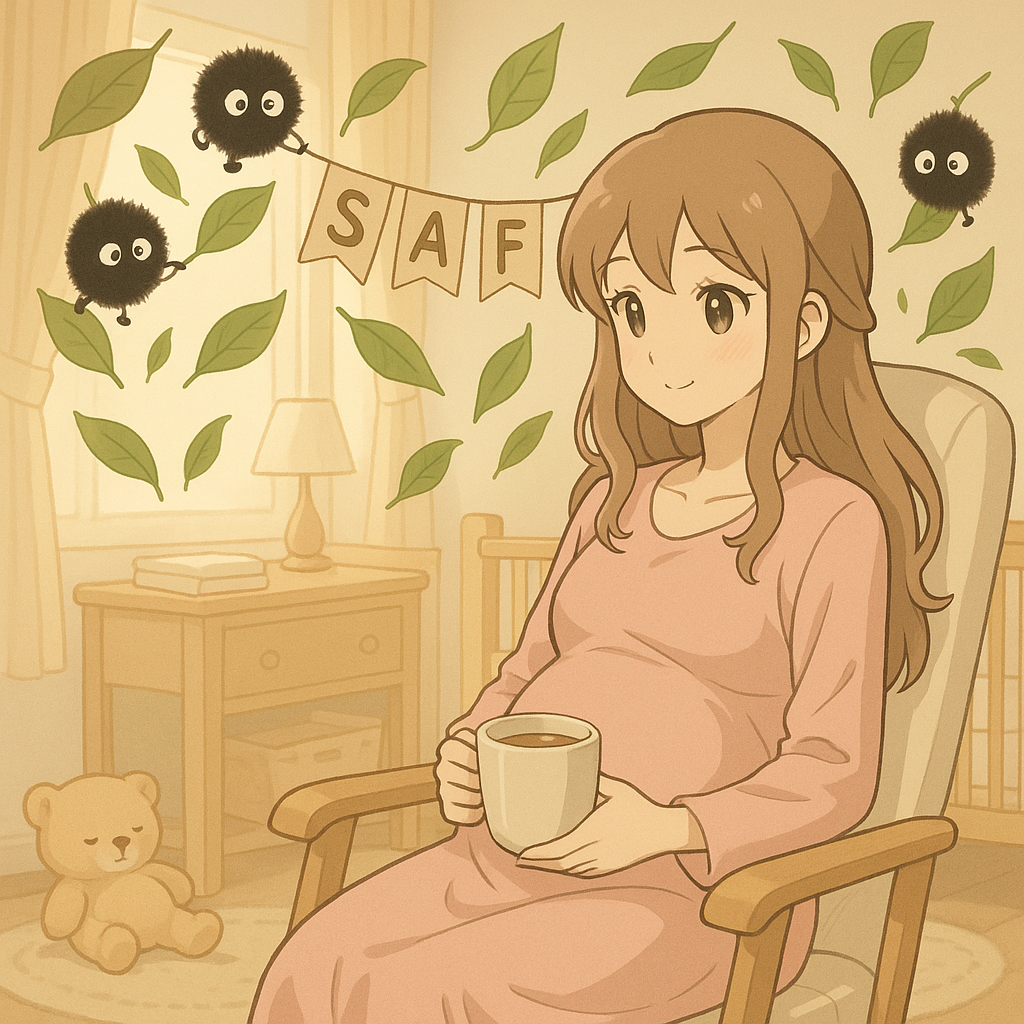
Is Hojicha Safe During Pregnancy & Breastfeeding? A Science-Backed Guide
When you're pregnant or breastfeeding, every sip matters. That cozy cup of tea you once loved now invites questions: “Is it safe?” “How much caffeine is okay?” For fans of hojicha—the roasted Japanese green tea known for its warm, nutty flavor and low caffeine—this guide breaks down the science to help you sip confidently.
Caffeine Limits During Pregnancy and Breastfeeding
The NHS recommends keeping caffeine intake under 200 mg per day while pregnant. That’s about one 12oz cup of coffee—or several cups of low-caffeine teas. According to a 2022 study published in the Journal of Perinatal Medicine, excessive caffeine has been associated with risks like low birth weight and miscarriage, especially over 300 mg/day.
Here’s how hojicha stacks up:
- Hojicha (loose leaf, hot brew): ~7–15 mg per 240ml cup
- Hojicha powder (latte): ~15–25 mg per serving
- Decaf hojicha (if available): ~1–3 mg per cup
That’s significantly lower than matcha (60–70 mg) or coffee (95–120 mg). So yes—hojicha is generally safe in moderation during pregnancy and breastfeeding.
Heavy-Metal Testing & Toxin Concerns
Another concern often raised with tea during pregnancy is contamination: specifically lead, mercury, and aluminum from soil or manufacturing.
A 2021 study from the Environmental Toxicology Journal found that Japanese green teas (especially those from Uji, Kyoto) contained lower heavy-metal residues than Chinese or South Asian teas. That’s because Japanese tea fields are subject to stricter pesticide and soil-monitoring protocols.
Still, to stay safe, always look for hojicha that is:
- Labeled as organic or pesticide-free
- Tested for heavy metals or certified with JAS/EU Organic stamps
- Stored in food-safe packaging (avoid cheap foil with unclear origin)
At Hojicha Lab, we source directly from certified Kyoto suppliers who provide third-party lab reports upon request. Ask your tea provider for the same.
Decaf Hojicha Options (and Do They Taste the Same?)
Decaf hojicha is rare—but it exists. Some Japanese manufacturers now offer water-processed decaf hojicha, reducing caffeine to near-zero levels without harsh chemicals.
Does it taste the same? Pretty close. Because the roasting process already lowers caffeine, the flavor relies more on the leaves’ origin and roast level than caffeine content.
Pro tip: If you can’t find decaf hojicha, try a cold brew (recipe below) to naturally reduce caffeine.
Recommended Servings Per Day
So how much hojicha is safe to drink while pregnant or nursing?
According to the American College of Obstetricians and Gynecologists (ACOG), pregnant individuals should stay under 200 mg of caffeine daily. Since hojicha contains ~7–25 mg per serving, you can typically enjoy:
- 2–3 cups of hojicha latte per day
- 3–5 cups of hojicha tea (loose leaf brew)
- Unlimited decaf hojicha (confirm with provider)
Remember to count caffeine from other sources too—like chocolate, soft drinks, and any coffee or black tea you may also enjoy.
What OB-GYNs Say About Tea in Pregnancy
“Tea is generally safe in moderation during pregnancy. Opt for low-caffeine varieties like rooibos, peppermint, or hojicha. The main issue is cumulative caffeine—not one specific tea.”—Dr. Alison Stuebe, MD, OB-GYN, UNC School of Medicine
Other experts, like Dr. Avena Ross of Mount Sinai, emphasize the importance of choosing trusted brands that test for contaminants and avoiding excessive green or black tea that may inhibit iron absorption.
Infographic: Is Hojicha Safe for Pregnancy?
How to Make a Low-Caffeine Hojicha Cold Brew
Cold brewing hojicha reduces caffeine even more—perfect for pregnancy-safe sipping.
- Add 1 tbsp of loose-leaf hojicha (or 1 teabag) to 500ml cold filtered water.
- Steep in the fridge for 6–8 hours.
- Strain and serve over ice. Add oat milk or honey if desired.
Cold water extracts fewer catechins and caffeine, but retains the toasty aroma of roasted tea. It’s mellow, smooth, and refreshing.
Want to enjoy better sleep too? Read our guide: Is Hojicha Good for Sleep?
Buy Hojicha Powder →